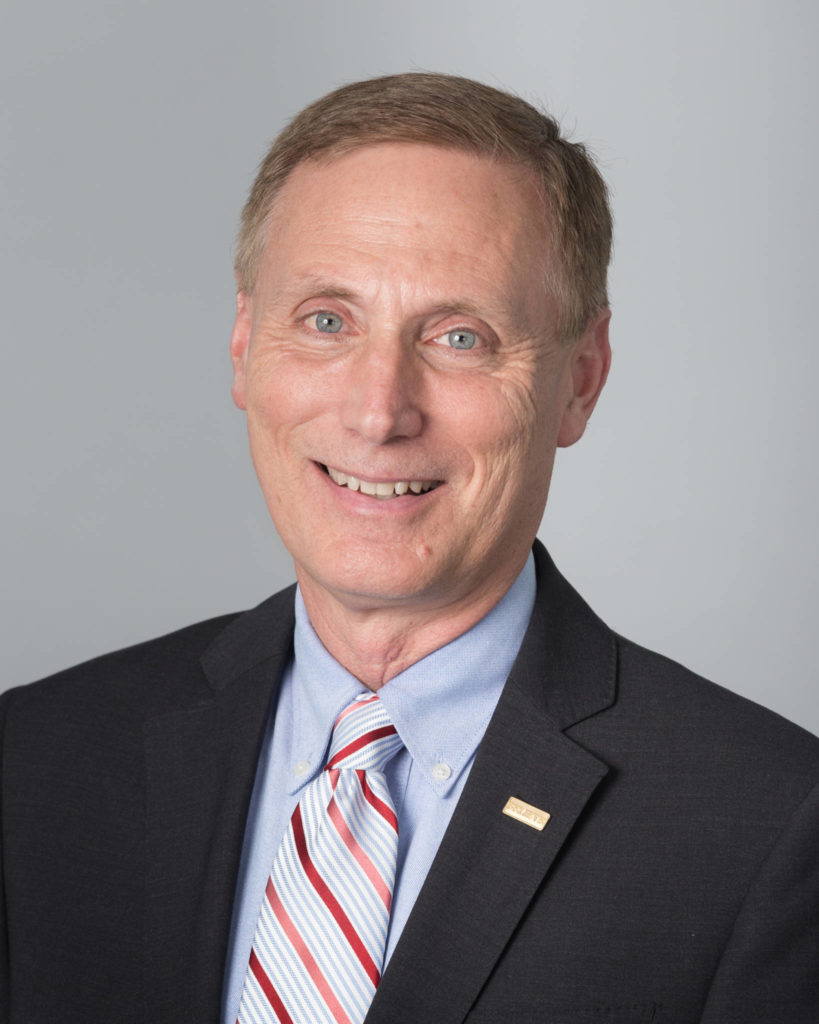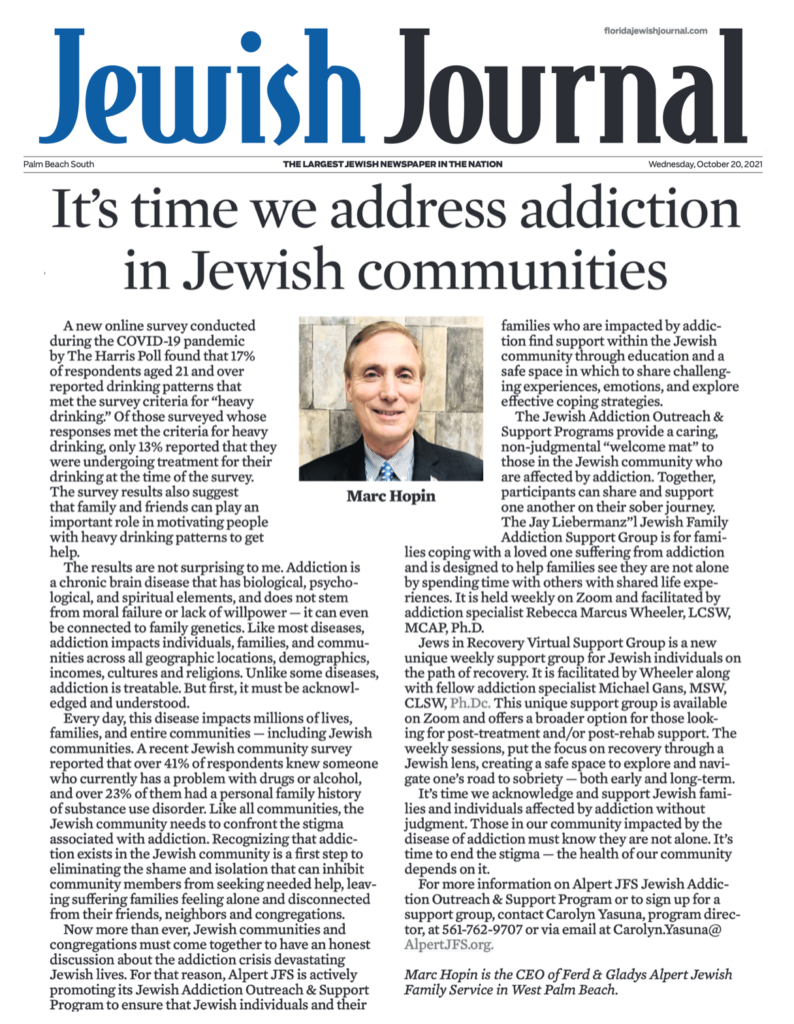It’s time we address addiction in Jewish communities:
Share


A new online survey conducted during the COVID-19 pandemic by The Harris Poll found that 17% of respondents aged 21 and over reported drinking patterns that met the survey criteria for “heavy drinking.” Of those surveyed whose responses met the criteria for heavy drinking, only 13% reported that they were undergoing treatment for their drinking at the time of the survey. The survey results also suggest that family and friends can play an important role in motivating people with heavy drinking patterns to get help.
The results are not surprising to me. Addiction is a chronic brain disease that has biological, psychological, and spiritual elements, and does not stem from moral failure or lack of willpower – it can even be connected to family genetics. Like most diseases, addiction impacts individuals, families, and communities across all geographic locations, demographics, incomes, cultures and religions. Unlike some diseases, addiction is treatable. But first, it must be acknowledged and understood.
Every day, this disease impacts millions of lives, families, and entire communities — including Jewish communities. A recent Jewish community survey reported that over 41% of respondents knew someone who currently has a problem with drugs or alcohol, and over 23% of them had a personal family history of substance use disorder. Like all communities, the Jewish community needs to confront the stigma associated with addiction. Recognizing that addiction exists in the Jewish community is a first step to eliminating the shame and isolation that can inhibit community members from seeking needed help, leaving suffering families feeling alone and disconnected from their friends, neighbors and congregations.
Now more than ever, Jewish communities and congregations must come together to have an honest discussion about the addiction crisis devastating Jewish lives. For that reason, Alpert JFS is actively promoting its Jewish Addiction Outreach & Support Program to ensure that Jewish individuals and their families who are impacted by addiction find support within the Jewish community through education and a safe space in which to share challenging experiences, emotions, and explore effective coping strategies.
The Jewish Addiction Outreach & Support Programs provide a caring, non-judgmental “welcome mat” to those in the Jewish community who are affected by addiction. Together, participants can share and support one another on their sober journey. The Jay Liebermanz”l Jewish Family Addiction Support Group is for families coping with a loved one suffering from addiction and is designed to help families see they are not alone by spending time with others with shared life experiences. It is held weekly on Zoom and facilitated by addiction specialist Rebecca Marcus Wheeler, LCSW, MCAP, Ph.D.
Jews in Recovery Virtual Support Group is a new unique weekly support group for Jewish individuals on the path of recovery. It is facilitated by Wheeler along with fellow addiction specialist Michael Gans, MSW, CLSW, Ph.Dc. This unique support group is available on Zoom and offers a broader option for those looking for post-treatment and/or post-rehab support. The weekly sessions, put the focus on recovery through a Jewish lens, creating a safe space to explore and navigate one’s road to sobriety — both early and long-term.
It’s time we acknowledge and support Jewish families and individuals affected by addiction without judgment. Those in our community impacted by the disease of addiction must know they are not alone. It’s time to end the stigma – the health of our community depends on it.
For more information on Alpert JFS Jewish Addiction Outreach & Support Program or to sign up for a support group, contact Carolyn Yasuna, program director, at 561-762-9707 or via email at [email protected].
Leave a Reply